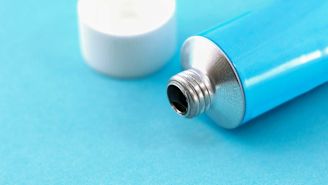Updated on September 30, 2025.
You're tired, gaining weight, and your sex drive isn’t what it used to be. You may even have some issues with erectile dysfunction (ED). Could you be going through a form of menopause?
Turns out, midlife hormonal fluctuations don’t only happen to women. Men can experience them as well, in the form of low testosterone (low T).
The phenomenon has been called ‘male menopause’ or ‘manopause,’ but these are misnomers. The low testosterone levels men experience are different than the changes women have during menopause.
Though it may not be menopause, the condition, known medically as andropause or late-onset hypogonadism, is real, says Robert Brannigan, MD, Chief of Male Reproductive Medicine and Men's Health in the Department of Urology at Northwestern University Feinberg School of Medicine in Chicago.
What is low T?
During menopause, women experience a relatively rapid drop in levels of estrogen and progesterone. This brings, over a period of 5 to 10 years, an end to the menstrual cycle and the ability to reproduce. Men, on the other hand, experience a more gradual decline in testosterone with age—on average, about 1 percent a year after age 30. That means that by the time a man reaches 70, his testosterone levels may have dropped by half from their peak.
Though aging is the main cause of low T, certain conditions and medications may contribute. These include testicular cancer, obesity, obstructive sleep apnea, kidney or renal disease, HIV/AIDS, injuries to the scrotum, chemotherapy, radiation treatment, or dysfunction of the brain or pituitary gland.
Typical testosterone levels range from 300 nanograms per deciliter (ng/dl) to 1,000 ng/dl. Generally, testosterone is considered low when levels dip below 300 ng/dL.
Signs and symptoms to note
Because it happens slowly (sometimes over decades), the symptoms of falling testosterone levels may be subtle and hard to detect. Symptoms also mimic those that naturally occur with age, even further complicating a diagnosis. Men with low T may experience the following.
Sexual symptoms
- Lower libido, such as fewer sexual thoughts
- Erectile dysfunction, including decreased nighttime erections
Nonsexual symptoms
- Fatigue
- Depression
- Muscle loss or decreased strength
- Weight gain
- Inability to concentrate
- Osteoporosis
- Hot flashes
- Anemia
These symptoms can be different for every person, and some men who have low T never experience any problems. Symptoms may crop up at varying testosterone thresholds, as well.
Also, testosterone is the main male sex hormone, but it’s not the only one. Men’s bodies make estrogen. As testosterone levels decrease, estrogen levels do as well. This loss of estrogen may contribute to some of the symptoms men experience as they age.
Is ‘male menopause’ common?
The data varies greatly, but some research suggests low T can be found in as many as 7 percent of men up to age 69 and 18 percent of men 70 and over. Experts say that numbers don’t tell the whole story.
"To some degree, most men experience some manifestation of ‘male menopause’ in the sense that, as we age, we're not the same in our 50s or 60s as we were in our 20s," says Steven Kaplan, MD, Director of the Men’s Wellness Program at Mount Sinai Health System in New York City. "There are a lot of different reasons for that, but hormonal balance is a piece of that. Some men are bothered by it and experience symptoms, and others are not."
While 'male menopause’ is often defined as low testosterone plus at least three sexual symptoms (including erectile dysfunction, poor morning erection, and low desire), Dr. Brannigan says symptoms can manifest differently depending on the patient.
"At the end of the day, every patient is unique," he says. "If his testosterone level is low and he has symptoms, we treat it. We don't insist that he have ED."
What you can do
If your sex drive has diminished, you have low strength and energy levels, or things generally aren’t working the way they used to, you may want to have your testosterone levels checked. A healthcare provider (HCP) can perform a physical exam and take blood tests to determine your testosterone level and the health of your pituitary gland (which controls the production of testosterone). Because testosterone levels can vary throughout the day, HCPs typically measure two separate fasting morning blood tests to confirm a diagnosis.
If your HCP determines your testosterone levels are low, they may prescribe testosterone therapy. Depending upon your needs, different kinds of treatment are available. These include:
- Short-acting therapy: Skin gels, patches, tablets, and nasal gels that are taken or applied daily
- Long-acting therapy: Intramuscular injections and pellet implants that are given weekly, bimonthly, or every six months
Brannigan recommends testosterone replacement therapy for men with levels below 300 ng/dL. "It's not a panacea, and I don't believe in wholesale screening of everyone, but I do believe there is a place for it," he says. "It's not the fountain of youth, but if you're suffering from low T, hormone replacement therapy may restore some of the pep that you're accustomed to.”
How safe is testosterone hormone therapy?
Testosterone isn’t prescribed to all older men with low T symptoms because there is a potential for side effects including acne, prostate and breast enlargement, decrease in sperm count, and worsening sleep apnea. Some more serious risks that have been associated with T therapy include blood clots and the growth of existing prostate cancer.
People who should not receive testosterone therapy include those with:
- Prostate cancer
- Breast cancer
- Enlarged prostate
- Untreated sleep apnea
- Heart attack or stroke within the previous 6 months
- Blood clots
Make sure you discuss your risk for prostate cancer and any history of heart disease with your HCP before beginning treatment, and make sure you follow recommendations for cancer screenings along the way.
Other options for low T
If testosterone therapy doesn’t feel right for you—or you’re having symptoms of low T but your levels aren’t low enough for treatment—there are a few things you can do in your daily life to help improve your hormone levels and overall well-being:
Manage your weight
Carrying extra fat, particularly around the belly, can cause the body to turn testosterone into estrogen. For each point drop in your body mass, you may gain one point in testosterone levels.
Exercise regularly
Getting regular cardiovascular exercise (think 150 minutes per week of moderate-intensity or 75 minutes of vigorous-intensity activity per week) plus regular weight training (at least two sessions per week) may increase testosterone levels.
Cut out alcohol, tobacco, and drugs
These can all work to decrease testosterone levels.
Eat healthfully
Reduce your intake of added sugar, caffeine, red meat and full-fat dairy (both of which are high in saturated fat), and processed foods. Include plenty of fruits and vegetables, whole grains, lean protein, healthy fats, and other foods with fiber, like nuts and seeds. Maintaining a healthy weight, along with getting exercise and eating well can reduce your risk of diabetes. Over time, having diabetes doubles your risk of having low T.
Get good sleep
Most testosterone is made at night during the REM phase of sleep, so skipping out on sleep can reduce your levels.
Before making any dietary or exercise changes, talk with an HCP. They can work with you to determine your current testosterone levels and develop the best treatment plan for improving symptoms.







